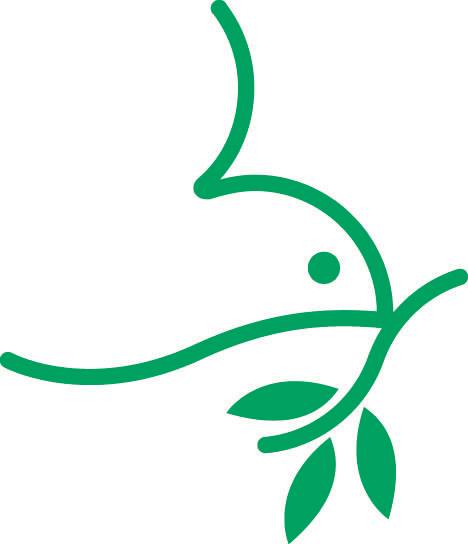 Lisa Renee Sayre is a registered nurse who works in a harm reduction clinic that serves people with substance use disorders. In addition to a nursing license, she holds a Master of Divinity degree from Pittsburgh Theology Seminary. Lisa is a member of Pittsburgh Mennonite Church, where she helps in the church garden, serves as a congregational auntie, and chairs the Adult Education Commission. One of Lisa’s life goals is knitting herself a wearable sweater.
Lisa Renee Sayre is a registered nurse who works in a harm reduction clinic that serves people with substance use disorders. In addition to a nursing license, she holds a Master of Divinity degree from Pittsburgh Theology Seminary. Lisa is a member of Pittsburgh Mennonite Church, where she helps in the church garden, serves as a congregational auntie, and chairs the Adult Education Commission. One of Lisa’s life goals is knitting herself a wearable sweater.
The author of this post was at a nonviolent anti-racist protest in response to the murder of George Flloyd, a week after his death. The protest was disbanded when police in riot gear blocked the path of the march and deployed less-lethal weapons against those calling for justice.
When the police declare an unlawful assembly, you have to decide to stay. It will help if you have considered the risks of the protest in advance and have discerned the amount of risk and potential pain you, in your own body, are able and willing to bear. But even if you join the march knowing that protesters were tear gassed in your city at a protest two days before – and even if you have accepted this risk for yourself – it will still require effort to keep your feet planted and your voice calling out truth as police in riot gear escalate against your nonviolence. Your stomach will still drop when you see the officers launch a dozen projectiles into the air and wait the long seconds until they land, concussion grenade sounding and your eyes starting to sting from the gas.
These are uncomfortable times. Living through a global pandemic is uncomfortable. Facing the consequences of our rapidly escalating ecological crisis is uncomfortable. Both living in and resisting the racism that has been revealed as one of the founding principles of American society is uncomfortable.
I have been thinking lately about how staying present in discomfort is a skill. I know this because I’ve had to develop that skill in my work as a nurse. Granted, I do have some natural tolerance for the more graphic parts of human suffering. Most of us who work in healthcare do. But we also learn and practice how to stay and do the work in situations where our bodies want to recoil or run away. We learn to reach gently into festering wounds, to cheerfully clean up more blood than you’d think there could be to clean, to walk calmly into the rooms of people who have diseases that could kill us. We also, for better or worse, learn to work without meals, to work without regular sleep, to work without having time for the bathroom. (The need for improved self-care and boundaries for healthcare workers is another essay.)
In the moment when I saw the police fling those less-lethal weapons into the air, it was my nurses’ training that helped keep my feet glued to the pavement. I write this not so that you can praise me but to say that it takes practice to learn to embody holding certain goods higher than our personal well-being.
For those of us who have had advantage conferred on us due to the color of our skin, the coming of a more just world is going to require embodied practice.
Giving up the real, material privilege we have enjoyed may feel like suffering. Standing in solidarity with our Black siblings, Latinx siblings, Indigenous siblings, and other siblings of color in opposition to the powers of this world will bring pressure until those powers fail. To be able to do the work of embodied resistance, we need to build our staying-present-in-suffering muscles.
In the outpatient clinic where I currently work, we’ve been having patients tell us that they haven’t eaten for days. This has been both shocking and not surprising at all, given the mass unemployment and rapidly increasing poverty ravaging our nation. In a world in which wealth was more easily reallocated, the funds of the rich could be used to buy food for the hungry. But in the present world, where those with large sums of money aren’t predisposed to share enough to ease the hunger of their neighbors, those of us with less will need to share with each other.
I have been thinking lately about fasting, which can be a way to free up food resources for siblings in need. Simply put, if I choose to fast from a meal – be it by eating nothing, eating less, or choosing more frugal ingredients – the cost of that meal or the groceries I would have used can be given to someone who might otherwise go hungry. In addition to being a resource-reallocation strategy, fasting is also a spiritual practice. Like nurses’ training, fasting can invite us to practice being present in the face of our own discomfort. It allows us to act from a place where we intentionally elevate the good of another over our own self-preservation. Fasting can help us practice being kind and cheerful and brave even when we don’t have everything we need. It can help us practice staying, instead of walking away from an experience that is uncomfortable.
I had been fasting on behalf of my patients in the weeks before George Flloyd’s murder ignited our nation’s latest press toward racial justice. In addition to my experience as a nurse, the experience of fasting helped me to feel more able to endure some level of police violence. I know that in my own journey of learning to labor toward justice, I have been grateful for those who have shared strategies for doing the work.
Discerning one’s role in the work of the church in the world is a holy and unique task. Not all are called to fast or to march. Or to risk police violence. But we are all called to resist unjust powers where we find them.
Think of this post as me offering you a tool from my toolbox, in case it might help you as we labor together to help build the Kingdom on earth. I would also like to invite conversation about what tools are helping you in the work.
I offer these thoughts in humility, in the service of the One whose Kingdom is both here and coming, whose suffering was a death blow to the powers’ deepest root. To Jesus be glory, now and forever. Amen
Learn about the Mennonite Church USA Justice Fund to support MC USA churches that are actively involved in dismantling racism, addressing police brutality, reimagining policing in our society or combating poverty.
The views and opinions expressed in this blog belong to the author and are not intended to represent the views of the MC USA Executive Board or staff.


